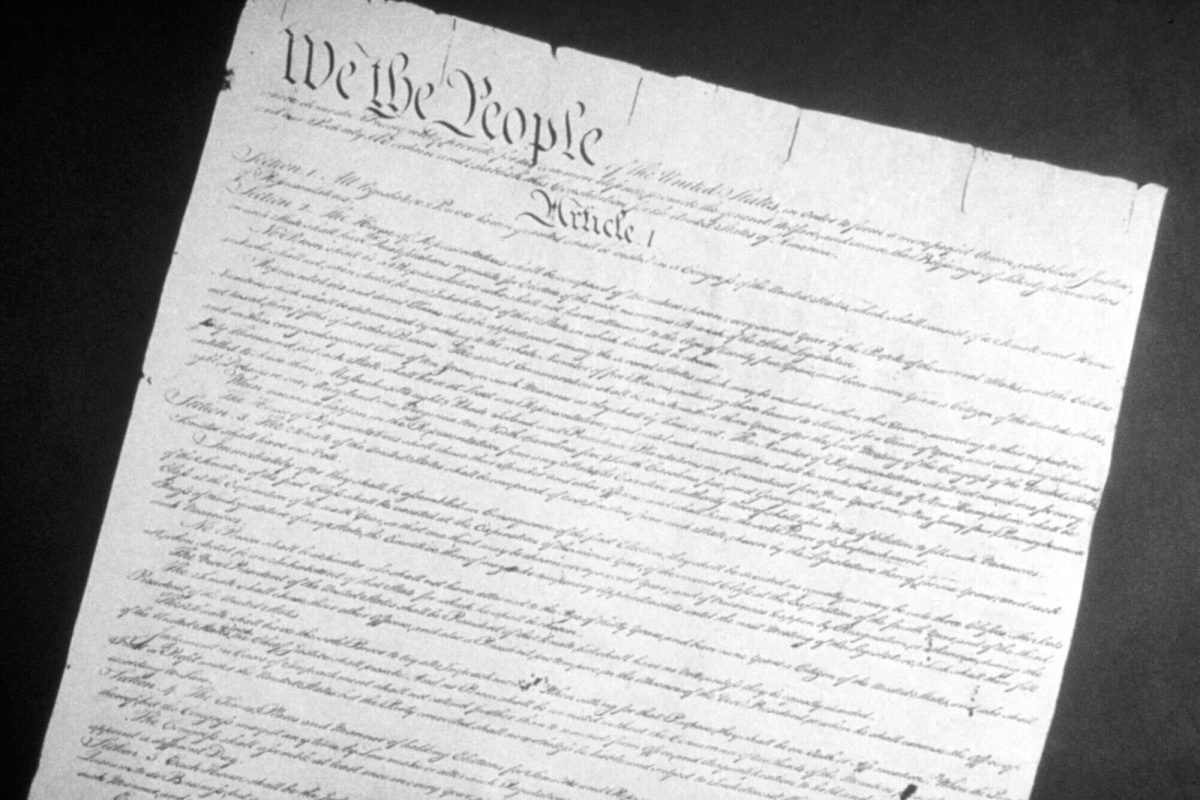In early August, Ohio voters rejected Issue 1, an amendment that would have made future amendments to the state’s constitution more difficult to implement. While the rejection is a victory, it’s disappointing to witness the political manipulation constitutional discussions experience today.
If Issue 1 was passed, amending the Ohio constitution would’ve required 60% agreement rather than a simple majority. In other words, 60% of the state’s voting body would need to agree for any future constitutional amendment to occur.
The rejection of Issue 1 was a major victory for abortion rights activists. Since the overturn of Roe v. Wade, state constitutional amendments remain one of the only ways to ensure reproductive rights – which have an increasing presence in political debate.
Amending constitutions, however, is not a new concept. Throughout history, we’ve changed our constitutions countless times to better our nation and further ensure the survival of human rights.
We saw critical change in 1865 with the 13th Amendment of the Federal Constitution and the abolishment of slavery – one of the most important amendments in U.S. history. We saw it again in 1919 with the 19th Amendment, granting women the right to vote.
These are big examples, perhaps, but not irrelevant ones. While less hallowed than the Federal Constitution itself, state constitutions directly impact the lives of American citizens. They tend to be easier to change and are less revered as a historical subject like the Constitution is.
“State constitutions vary. For the most part, the state constitutions are a lot easier to amend. A lot of states you can do it through ballot initiatives. Obviously we don’t have that at the federal level,” said J. Mitchell Pickerill, professor and chair in NIU’s political science department. “State constitutions tend to be more specific, and a lot of national constitutions around the world are closer to our state constitutions. They’re longer. They have a lot more detail in them. The Federal Constitution just simply wasn’t drafted in that way; and therefore, culturally, I think we’ve kind of accepted it as that, that it’s got a lot of broad principles and broad language in it.”
No constitution is meant to be careless, but they are meant to be flexible. We are meant to respect constitutions but still consider, interpret, fix and develop them. This is how constitutions remain democratic, truly the word of the contemporary people.
There must be limits to what we can change, how much power we place in judges in weeding the unconstitutional from the constitutional.
“It’s important to have a theory of how to interpret the Constitution because in a democracy when you have unelected judges striking laws down for being unconstitutional … the concern was: are judges just being politicians, are they just making policy?” Pickerill said. “And so if law means anything, then there needs to be some standards by which we understand the law. Otherwise, the Constitution isn’t law. Judges can do whatever they want. The Constitution is supposed to both empower government but also limit government.”
How to interpret the Constitution is a highly complicated, multifaceted subject.
But pushing against constitutional amendment supports the dangerous fantasy that we are fine as we are, that we have no room to grow. Today, cementing constitutions holds the potential to prevent us from protecting, as well as further advancing, human rights.
Furthermore, using the Constitution’s original transcript to pursue partisan interests disrespects the idea of our Constitution as it was imagined by our founders.
Pickerill feels the incentive behind the Ohio proposal is not an uncommon one today, but incredibly disappointing.
“I want good faith. I don’t mind super majorities to amend something like the Constitution, but there needs to be thoughtful, good, broader reasons for doing it. (Not:) ‘Oh, I need to protect my short term political interests,’” said Pickerill. “Unfortunately, we just live in that. Really, we live in a country where a large proportion of our politicians just are not principled … Partisans are always self interested and motivated.”
We saw such manipulation with the Ohio proposal, and we see the Constitution used as a partisan excuse with every shooting that casually appears as daily news in our papers.
After all, 57% of the Republican party believe most current gun laws must be repealed because the second amendment is set in stone – unbendable, inflexible even for the lives of innocents, according to the McCourtney Institute’s 2019 Mood of the Nation poll.
It should be American to be proud of our ideals, our Constitution and our progress, but it shouldn’t be so American to be scared of change.















